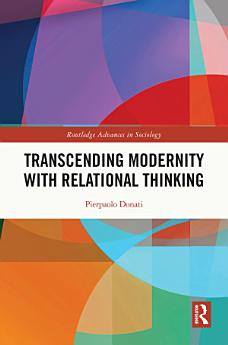Transcending Modernity with Relational Thinking
આ ઇ-પુસ્તક વિશે
This book explores the ways in which social relations are profoundly changing modern society, arguing that, constituting a reality of their own, social relations will ultimately lead to a new form of society: an aftermodern or relational society. Drawing on the thought of Simmel, it extends the idea that society consists essentially of social relations, in order to make sense of the operation of dichotomous forces in society and to examine the emergence of a "third" in the morphogenetic processes. Through a realist and critical relational sociology, which allows for the fact that human beings are both internal and external to social relations, and therefore to society, the author shows how we are moving towards a new, trans-modern society – one that calls into question the guiding ideas of Western modernity, such as the notion of linear progression, that science and technology are the decisive factors of human development, and that culture can entirely supplant nature. As such, it will appeal to sociologists, social theorists, economists, political scientists, and social philosophers with interests in relational thought, critical realism, and social transformation.
લેખક વિશે
Pierpaolo Donati is Alma Mater Professor (PAM) of Sociology at the University of Bologna, Italy. Former President of the Italian Sociological Association, he is the author of Relational Sociology: A New Paradigm for the Social Sciences, co-author of The Relational Subject, and co-editor of Social Science, Philosophy and Theology in Dialogue.




